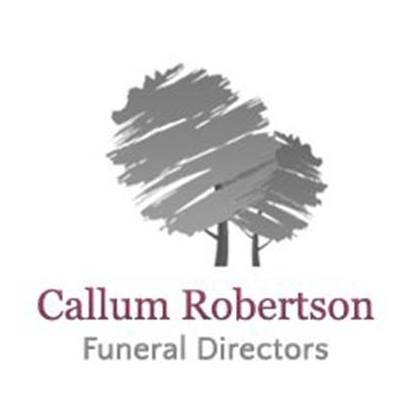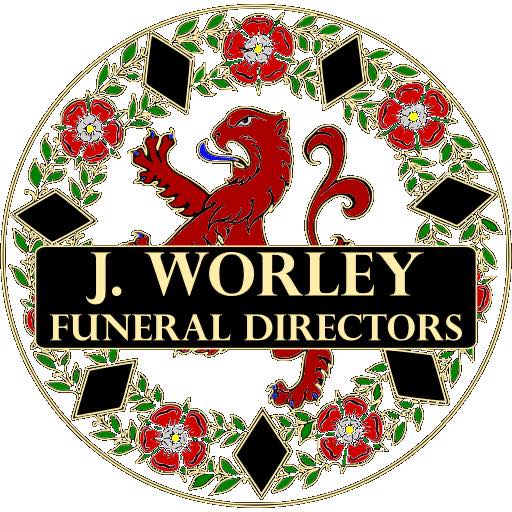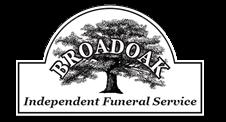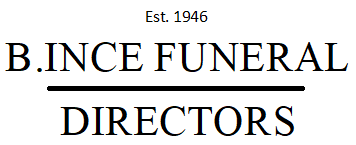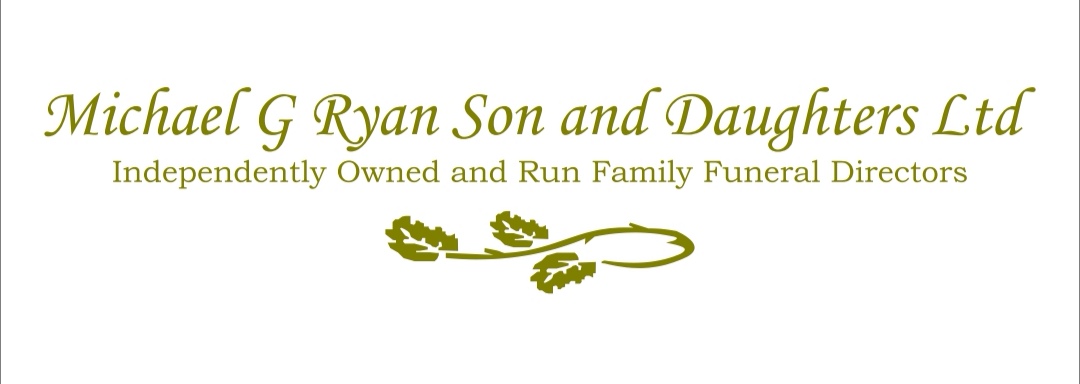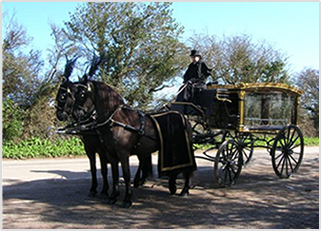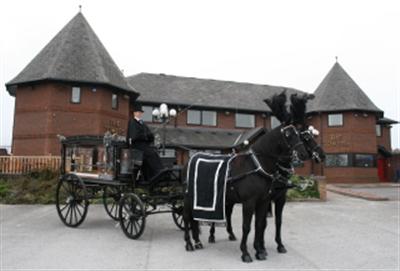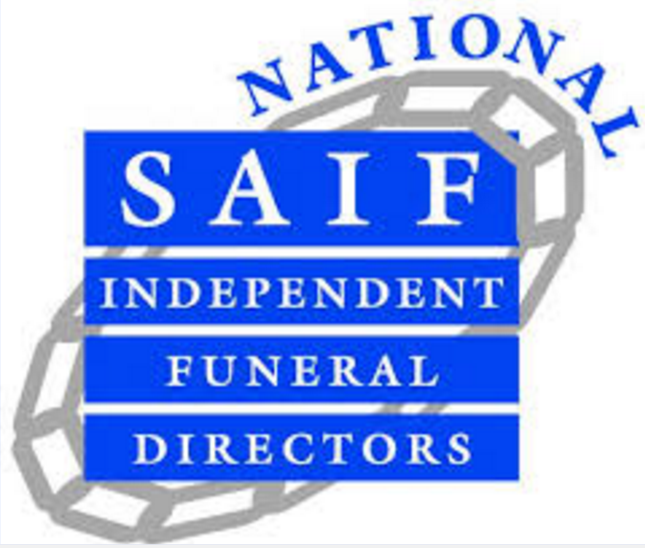Funeral Directors
If you need to hire a funeral director, or want to know more about what to expect from hiring a funeral director, then consider this page your one-stop funeral A-Z.
Highly rated Funeral Directors in the UK
The following UK funeral directors have received the highest ratings from their local communities.
Table of Contents
- What does a funeral director do?
- How much does a funeral cost?
- What happens during a meeting with a funeral director?
- Who collects and prepares the body after death?
- Do you have to register the death?
- What forms are required for a burial or cremation?
- How do you place an obituary?
- How do you plan the funeral service?
- How do you choose funeral music and hymns?
- Where can you buy funeral flowers?
- What is the committal service?
- How do you organise a wake?
- What happens after the funeral?
Local Advice: Cities
Local Advice: Counties
What does a funeral director do?

A funeral director, or undertaker, is someone that helps you to say goodbye to a loved one by taking care of the funeral arrangements for you. This leaves you free to focus on mourning and supporting the people around you that have been affected by the death.
Common tasks of a funeral director include:
- Meeting with families
- Arranging transport for the deceased
- Organising legal paperwork
- Placing death notices in the paper
- Planning the funeral
Often, the family of the deceased will be unfamiliar with the specifics of planning a funeral, so the presence of an experienced funeral director that can answer questions and assist with the planning of the funeral is often very reassuring.
A funeral director can visit you at home, or if you prefer you can discuss the funeral arrangements at the funeral home. In the case of the latter, many funeral homes also have a chapel or place of rest where you can spend some time with your loved one and say goodbye.
How much does a funeral cost?
The actual cost of a funeral will vary depending on the location and the type of funeral that you choose. These funeral costs are referred to as disbursements (unavoidable costs) and generally include the following:
- Funeral director fees for the burial or cremation
- Paperwork such as medical certificates
- Transportation of the deceased
- The cost of hiring a celebrant to perform the funeral service
There are also other potentially large costs to consider such as the type of coffin required and hiring a venue for the wake. Other optional costs include grave markers, flowers and death notices in the local paper. If you are planning a wake you will also have to factor in catering and entertainment costs.
With so much to organise and consider it’s often much easier to take advantage of a fixed price funeral package from your funeral director. And, depending on the package you choose, most of the fees will be included in the price you pay.
These packages start with direct cremations, where the deceased is cremated without a funeral service. Or, you can opt for a complete funeral with everything that you would expect, such as a service, coffin and hearse included.
Make sure you always check to see what is and isn’t included in your funeral package to make sure you aren’t caught out by surprise costs. For example, local authority fees for certain certificates are generally not included in funeral packages.
What happens during a meeting with a funeral director?
A funeral directors first responsibility is to meet with the family of the deceased and offer advice and guidance. In many cases, the family of the deceased will be unfamiliar with the specific details involved in planning a funeral, so the presence of an experienced funeral director that can answer questions is often very reassuring.
A funeral director can also serve as an impartial liaison between family members when a death has occurred during a time of family strife. This could, for example, include a divorce, financial disagreement or a major upheaval. In these situations, a funeral director can help to reduce the pressure on those involved during a time a when mourning should be the focus.
Having a funeral director at the helm of the funeral arrangements can also relieve the pressure of responsibility that is often felt by key members of the family. This includes everything from choosing the most appropriate tributes to communicating the specifics of any funeral arrangements to everyone involved.
Who collects and prepares the body after death?
Following a death, the funeral director will be responsible for arranging the transfer of the deceased to the funeral home. This is an often lesser-known but necessary part of the funeral process that ensures that the proper respect and care is given to the deceased.
Once under the care of a funeral director, the deceased can then be prepared for a burial or open casket ceremony depending on the wishes of the family. If the latter option is chosen your funeral director may need to discuss embalming with you.
Your funeral director will also speak to you about clothing for the deceased, such as a favourite outfit or religious/cultural attire. Even if you are opting for a burial rather than an open casket it’s still a respectful gesture for your loved one to be dressed in a manner that they were most accustomed to.

Do you have to register the death?
There is a legal requirement to register a death within five days in England, Wales and Northern Ireland, and eight days in Scotland. Unfortunately, your funeral director cannot register the death for you, this must be carried out by the person organising the funeral. However, a funeral director can advise you on how to complete the necessary legal paperwork.
Once the death is registered with the registrar you will then be issued with a green form which must be given to your funeral director before they can proceed with arranging the burial.
If an inquest was held by the Coroner no green form will have been issued. In these cases, the Coroner will issue an Order for Burial (form 101). In these instances, your funeral director will collect the form on your behalf.
What forms are required for a burial or cremation?
Your funeral director will arrange for an application to purchase a new grave or to re-open an existing plot for you. In cases of the latter, the existing deeds will be required.
If a prompt burial is required for religious reasons then you should speak with your funeral director about obtaining a green form from the registrar prior to the registration of death. This is normally possible as long as a Medical Certificate of Cause of Death has been issued.
For cremations, your funeral director will inform you about changes to the law that came into effect from the 1st January 2009. Specifically, this relates to new forms that must be completed to authorise a cremation.
An important aspect of the change is that families of the deceased now have the right to view the forms completed by medical staff. This is an important safeguard for family members who may be concerned about the recorded cause of death.
How do you place an obituary?
An obituary (often called an obit or a death note) is an announcement of an individual's death and is usually placed in a local newspaper. The obituary will usually include the following information:
- The name of the person that has passed
- The date and location of the funeral or memorial service
- Any additional information needed for anyone that may wish to attend.
Anyone can place an obituary via the website of a local newspaper by paying a fee, including family, friends and a funeral director. In some cases, you may not have to pay if the funeral director acts on your behalf, however, this varies between funeral homes.
If you would rather not take part in this tradition you should inform your funeral director of your wishes as often an obituary is included in pre-paid funeral packages as standard. So you could, for example, ask for this fee to be returned to you or to be donated to a charity.

How do you plan the funeral service?
Your funeral director will be able to offer you advice and guidance when it comes to planning the funeral service. This includes explaining the various types of funeral services available to you, along with recommendations as to which is most appropriate for the deceased.
This is where the services of a funeral director become invaluable as the planning of a funeral service can be a very daunting experience. Particularly if the people responsible for planning the funeral have no prior knowledge of what to expect. This includes things like:
- Arranging the funeral procession
- The provision of a high-quality hearse
- Ordering a fitting floral tribute
- The route of the procession (such as a journey that was important to the deceased)
You can also rely on your funeral director to take care of the important but easily overlooked details, such as sourcing sufficient pallbearers to carry the coffin from the hearse with the correct dignity and respect. Or by coaching family members and friends of the deceased that wish to serve as pallbearers on the day.
Finally, your funeral director will discuss the order of service with you to ensure that there is adequate time for tributes, readings and poems. This is an important consideration, as often there is a time limit at funeral venues, where other services may be planned on the same day.
How do you choose funeral music and hymns?
People are naturally drawn to music that reflects something about their personality. This could be something as simple as a particular line from a song that conveys a prominent personality trait, or an entire genre of music that binds the person to a meaningful memory in their lives.
Sharing this music with mourners is a wonderful way to give them an insight into the personality of the deceased. Particularly if the same music that was important to the deceased continues to remind loved ones of their memory.
Hymns are also a popular choice, even for those that aren’t religious. This is perhaps because many of the more well-known hymns have been written with a great sentiment in mind, helping to provide a sense of comfort and closure to those that hear them.
Even if you are unaware of the music choices of the deceased, you should still consider including some form of music in the service. Music is universally appreciated so listening as a group will help to bring mourners together with a single focus and purpose.
If you do choose to include music your funeral director can take care of the details on your behalf. This can include the sourcing of sheet music for a live performance and the provision of any equipment needed to play a particular record or CD.

Where can you buy funeral flowers?
Most funeral directors can arrange for funeral flowers to be prepared for the funeral as a fitting tribute. These flowers will usually be ordered from a local florist, often at a reduced rate due to the ongoing relationship between the florist and the funeral home.
Selecting the right flowers for a funeral will depend on your relationship with the deceased. For example, funeral crosses or casket sprays are traditionally given by the closest members of the family, or by those most involved in the planning of the funeral.
You may also want to send flowers to the homes of anyone affected by the death as a mark of sympathy. Your funeral director may be able to help with this or at the very least, put you in touch with a local florist that can help.
What is the committal service?
A committal service is usually held directly after the funeral either at the crematorium or graveyard. This is the final moment for loved ones to say goodbye to the deceased and recite any final prayers, readings or poems.
For burials, the committal service takes place at the graveside of the deceased, with the coffin being lowered into the ground after the final goodbyes have been said. Attendees of the service can then place flowers into the grave or scatter soil if they prefer.
For cremations, the committal service will usually take place at the crematorium, though it can take place at the same location as the funeral service if required. Following the committal service, the coffin will usually pass through closing curtains to be cremated or be taken to a separate area to be cremated soon after.
You will then have the opportunity to leave floral tributes in the crematoriums place of remembrance or place flowers by the grave. Your funeral director will then escort you to the wake or reception if you have one arranged.
How do you organise a wake?
A wake is a gathering of the friends and family of the deceased and usually takes place after the funeral and committal service. The wake is a far less formal affair than the funeral, giving mourners the opportunity to share stories and celebrate the life and personality of the deceased.
Traditionally a wake is held in the home of the deceased, however, most modern wakes take place in funeral homes or suitable local venues. Food and refreshments are normally provided for guests as well as entertainment where appropriate.
Organising a venue, catering and entertainment for a large group of people has the potential to become overwhelming during a time of grief. Fortunately, this is where you can rely on the guidance and advice of your funeral director.
What happens after the funeral?
Your funeral director will usually be in touch in the days after the funeral, firstly to see how you are and to arrange any final details such as the collection of ashes or the return of any tributes. You will also have the opportunity to pass along your thoughts to the funeral director, such as whether you felt the service went as planned.
Many people will often feel the full effect of grief once the funeral has passed. If you are struggling to cope during this difficult time your funeral director will be able to offer advice. They may also be able to put you in touch with a professional grief counsellor if required. It’s important to accept this help if needed, as there is no shame in being overcome by the loss of a loved one.
